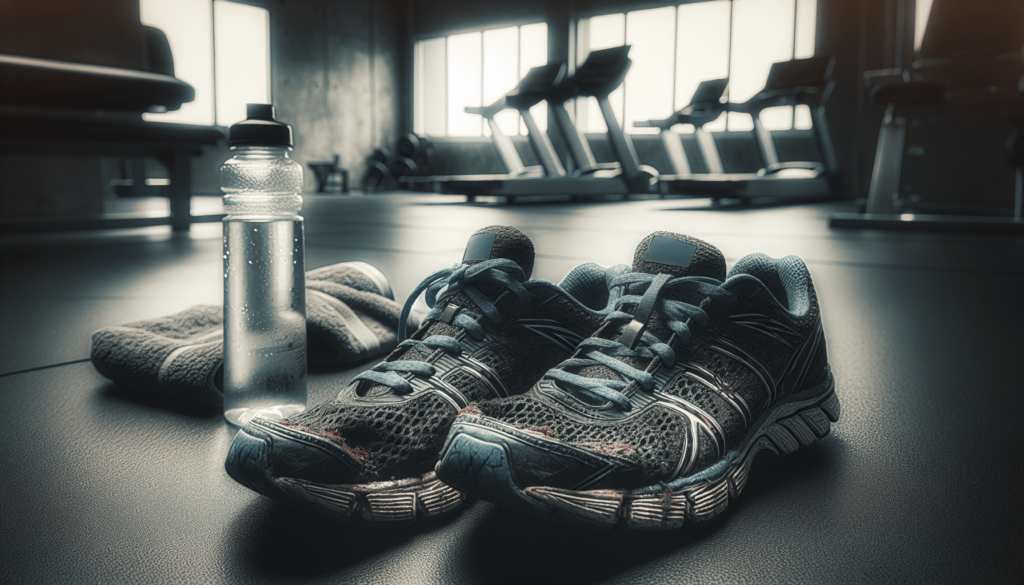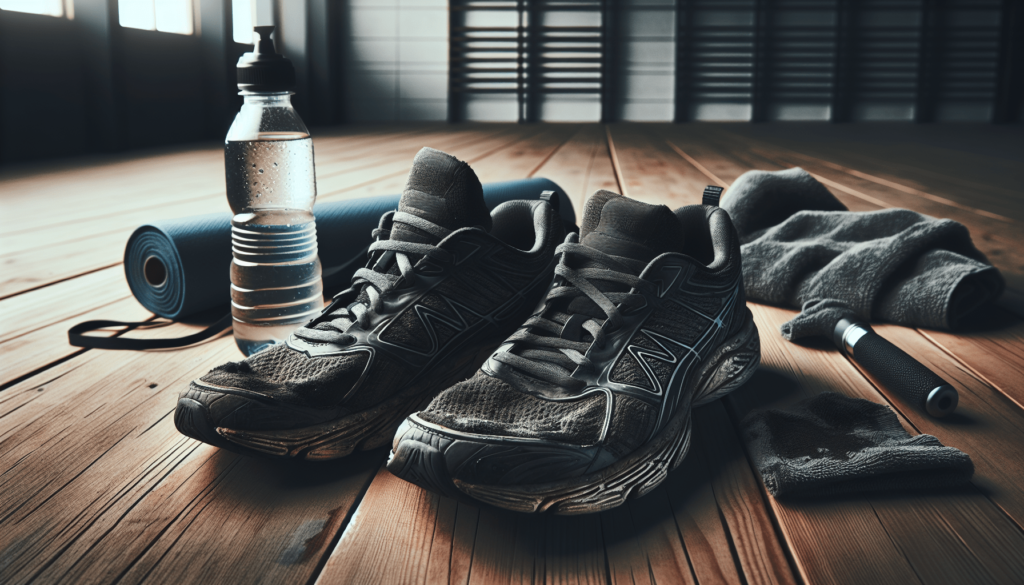Do you ever feel like your treadmill might actually be a time machine, taking you back to an era where dinosaurs roamed and the idea of a sprint was merely theoretical? While you’re busy doing your best cheetah impression, have you asked yourself if maybe, just maybe, you’re overdoing it a tad? Let’s discuss recognizing and preventing overtraining because, apparently, there is such a thing as too much exercise—who knew, right?

What is Overtraining?
Overtraining, in case you find the concept as surprising as discovering a marmot in your gym locker, is essentially what happens when you train beyond your body’s ability to recover. Imagine telling your muscles to “get pumped” so many times that instead of bulging proudly, they decide to retire early like a grumpy CEO who’s had enough of board meetings. You see, even muscles have their limits.
The Science-y Stuff Behind Overtraining
Before your eyes glaze over like a donut, let’s talk briefly about what’s going on behind the scenes when you overtrain. Your body loves a good challenge—it’s like that friend who volunteers for every karaoke song. However, when you consistently push it beyond its abilities without adequate recovery, things start to get a bit dicey.
Overtraining syndrome (OTS) is basically your muscles throwing a protest, complete with picket signs that read, “No More Squats.” It’s the result of a prolonged imbalance between training and recovery that leads to decreased performance. In simpler terms: If you overtrain, you won’t necessarily become the next Olympic champion; you might just end up being number one at feeling like garbage.
Signs That You’re Overtraining (And Not Just Lazy)
Now, I know what you might be thinking: “Surely, a couple of extra hours at the gym can’t hurt!” But oh, gentle reader, they can indeed. Here are some classic overtraining symptoms that are basically your body’s version of a screaming toddler in a grocery store.
Physical Symptoms
-
Chronic Muscle Soreness: You know those little aches and pains you get after a workout? Imagine those evolve into full-blown, angry muscle protests that refuse to subside even after days of whining to your foam roller.
-
Increased Incidence of Injury: Your muscles, acting like divas, get so dramatic they start injuring themselves. Sprains, strains, and little muscle tears become your body’s way of saying, “New phone, who dis?”
-
Decreased Performance: Despite your noble efforts, all that extra training isn’t turning you into an Olympic hopeful. Instead, you might find you’re getting slower, weaker, and just generally more disappointing than a low-fat smoothie.
Psychological Symptoms
-
Mood Swings: Thanks to the added stress, you might find yourself swapping personalities faster than a spy under pressure. Calm one moment, raging like a balloon animal next.
-
Decreased Motivation: The idea of skipping workouts sounds as seductive as a forbidden romance novel, and suddenly, reruns of soap operas seem way more enticing than hitting the gym.
-
Depression and Anxiety: Feeling utterly miserable and anxious could be your body’s way of telling you that it needs a break. I mean, what good is a six-pack when it’s trying to find emotional support from a pint of ice cream?
Causes of Overtraining
Enter the villains of our tale: the causes of overtraining. These sneaky little fiends can creep up on you like a high school acquaintance on social media, and we’re here to point them out for you.
Excessive Training Volume
You might think there’s a direct relationship between how much you train and how awesome you look beaming from a magazine cover. But when you crank up the training intensity and volume to immoderate levels, you end up with the muscular equivalent of a sitcom washout.
Inadequate Rest and Recovery
Rest days aren’t just for bonbons and Netflix binges. Skipping them generally equates to inviting chaos into your fitness progress. Time away from exercise allows muscles to repair and grow stronger because, believe it or not, they can’t sustain an around-the-clock burpee marathon.
Insufficient Nutrition
Imagine trying to run a marathon powered by only a slice of toast and a weak cup of coffee. Not an advisable strategy. If you’re underfed or living off meals less nutritious than cardboard, you can bet your biceps that you’ll hit a wall even if your protein shake is a gym worship anthem.
Tests for Overtraining
Before you start diagnosing yourself with every symptom known to man, consider some more scientific ways to check if overtraining is the culprit. Let’s play a game: Overtraining or Just Tuesday?
Resting Heart Rate Test
Upon waking, while still clinging to dreams of tropical vacations, check your resting heart rate. If it’s faster than usual, your heart might be giving you a subtle clue that you’re overdoing it and need more Netflix ‘n’ no-chill.
Varying Your Workouts
Try including rest days (yes, you heard it right) and mix up workout intensity. If you find your performance skyrockets and your limbs feel less like limp noodles, you were likely overtraining.

The Venerable Path to Recovery
Get ready to geek out on tips and techniques to ensure overtraining becomes merely an amusing anecdote in your uphill, sweat-drenched journey to fitness glory.
Rest and Recuperation
Picture your ideal weekend: a hammock, a novel, maybe some yoga pants. Proper recovery is just as soothing. Incorporate rest days to prevent muscles from waving little white flags of surrender. And, just to reiterate the wisdom of our forefathers, sleep is key. Honor the sacred slumber cycle like the muscle-rejuvenating godsend it is.
Smart Training Plans
Adopt a plan that’s smarter than a Mensa member at a trivia contest—balanced with a delightful mix of varied exercises, an appropriate frequency, and thoughtfully arranged rest days. Remember, your muscles are not SUVs—they don’t need to prove their rugged endurance daily.
Proper Nutrition
Treat your body like the temple it is (or at least a well-regarded pizza parlor). Adequate nutrition is the bedrock of stellar performance. Balance your macros, drink plenty of water, and maybe once in a while, toss in a few veggies – just don’t tell Popeye you considered anything other than spinach.
Longitudinally Speaking: Long-Term Overtraining Consequences
After discussing immediate effects, let’s conjure up slightly eerie scenarios of “What Ifs?” What if you continue down the lane paved with relentless exercise and sweat-soaked spandex, oblivious to all warnings?
Potential Health Issues
We’re talking stuff that sounds like sequels from a bad medical drama: chronic fatigue, hormonal imbalances, immune system hiccups, and general malaise that turns every treadmill sprint into a marathon traced with melancholia.
Juggling Sports and Social Life
If your social life’s been reduced to conversations about squat racks, and friends have started treating you like a rare Sasquatch sighting, it might be time to recalibrate. Exercise should improve life quality, not have you living in a social vacuum.
Balancing Act: Staying Active Without Overtraining
“Great,” you say, “So what’s the suitable balance between fitness and living my best life?” Well, let’s wrap this up without offending your abs (or dedication) with the favorites of a vaudeville fitness coach:
Periodization Training
Periodization involves cycling through specific training phases, like a seasoned thespian through theater roles. Face the chill of low-intensity workouts, the drama of high-intensity phases, and recover in well-earned intermissions.
Listening to Your Body
Your body is like a precocious teenager—surprisingly insightful but easily ignored. Pay heed to its messages and signals. If sandbags are lighter than your sprint pace, it’s okay to ease off.
Hiring a Professional
Ah, the ultimate trump card: a professional trainer. Someone who will cheer your triumphs, chide your excesses, and allow you to offload responsibility for a while. Let them lead your workouts to love translation, translating the dialect of your muscles into success-fueled Shakespearean soliloquies.
Now, armed with the knowledge and savoir-faire regarding overtraining, go forth wisely. Exercise responsibility with the moral compass of Marie Kondo faced with a cluttered gym—training should spark joy, not burn you out.
